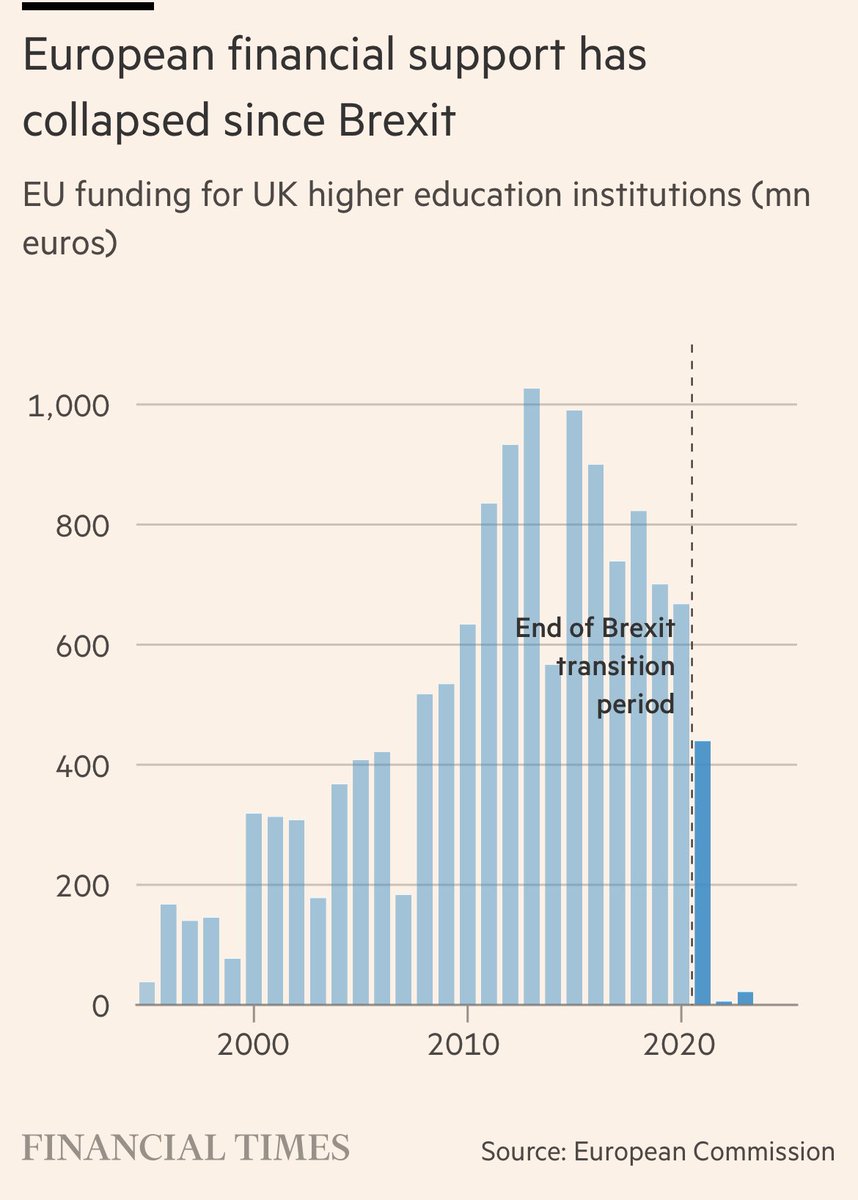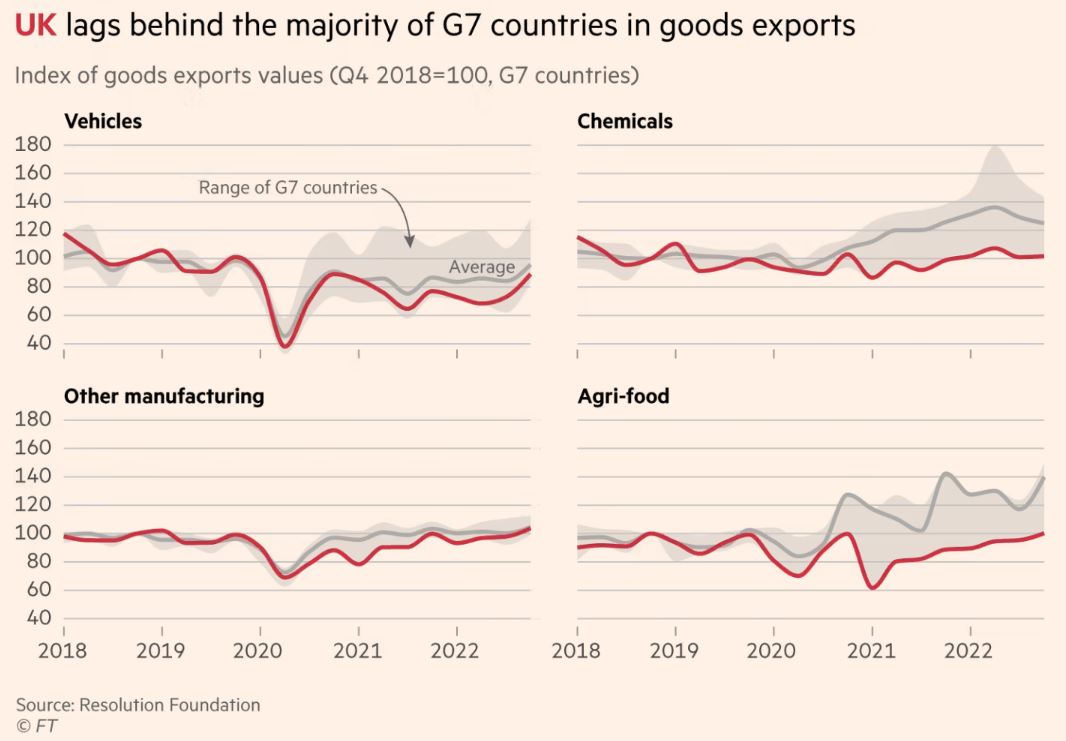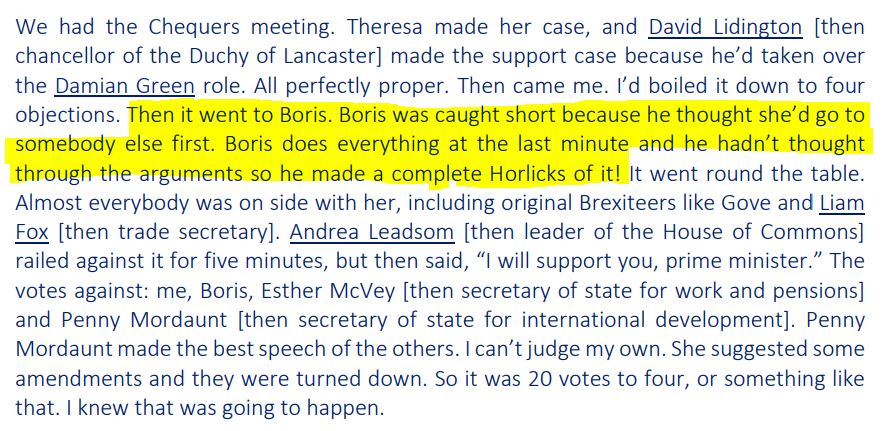🚨🚨when ministers aren’t bashing UK universities they love to boast about them. Rightly. But unless something changes on funding there will be a lot less to boast about in 10 years time. /1
Here’s why via @ft Big Read…
on.ft.com/3rtAhGF
Here’s why via @ft Big Read…
on.ft.com/3rtAhGF
As Simon Marginson Higher Education prof at Oxford University explains the UK is in danger of getting back to the funding crisis levels that sparked need for tuition fees…/2 

These charts by @amy_borrett explain the basic problem. Triple whammy of inflation, #Brexit and risky over reliance on international students to x-subsidise undergrad teaching (previously used to make up research grant shortfalls). /3








And demand is only going to grow in this decade because of demographic bulge of 18yos. FT calculations based on ONS population projections suggest the UK will need to find an additional 45,000 university places in 2030 if current rates of participation are to be maintained./4
The challenge as Sheffield Hallam VC Chris Husbands @Hallam_VC acknowledges is that neither pupils nor politicians want to hear arguments for better funding — if UK wants to keep a globally competitive offer/5 

@Hallam_VC There are possible fixes as Nick Barr at LSE (who was instrumental in original fees discussion) explains, but not at all clear Labour has any more stomach than Tories to address. /6




@Hallam_VC But as Tim Bradshaw and Vivienne Stern of @RussellGroup @UniversitiesUK argue, if UK wants be a “science superpower” and a cutting edge knowledge economy, it will have to make choices. /7
@Hallam_VC @RussellGroup @UniversitiesUK This is a classic story of the British frog getting boiled. It’s not that top unis disappear, or UK doesn’t still do cutting edge research, but overall it faces chronic slippage if it fails to invest in its future. That will mean some very hard choices. ENDS
• • •
Missing some Tweet in this thread? You can try to
force a refresh

 Read on Twitter
Read on Twitter









